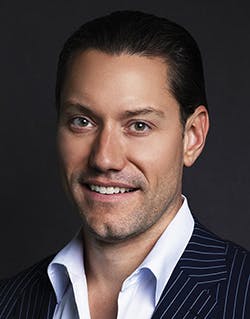Editor's Note: This post was sponsored by Progressive Reliability.
Based on research conducted this year by Plant Services, it is still a challenge for industrial facilities to recruit skilled workers, although it is getting somewhat easier to retain people once they come on board.
Chris Pepin is the founder of Progressive Reliability, a company dedicated to decreasing turnover and simplifying the hiring process. Chris and the Progressive Reliability team specialize in recruiting direct hires, contract experts, and subject matter experts in the maintenance and reliability space. Their approach is to focus the majority of the vetting process on intangible and untrainable traits, ensuring that the right candidates are paired with the right opportunities, eliminating the noise and frustrations that stem from poorly matched talent.
Plant Services recently spoke with Chris on key issues currently facing the industrial workforce, and some of the challenges involved with recruiting maintenance and reliability professionals.
Q: Chris, you founded Progressive Reliability about three years ago. Could you tell me and our readers a bit about the company, what the core mission is of Progressive Reliability, and why that mission is important in today’s industrial market?
A: One of the best things that we noticed within the maintenance and reliability (M&R) world is the amount of respect and camaraderie everybody has with one another. It is a critical, large industry, yet also quite small in a lot of ways. How the pros at the top of the manufacturing world treat one another is infinitely healthier than what we found in other verticals.
We also noticed that most of the go-to talent acquisition options were either side divisions of multifaceted M&R companies or industrial brands who attempt reliability with inconsistent results. So we put a team together to create a pure M&R talent and consulting agency. We’re trying to do right by the industry and leave everyone better than we found them while uniting quality people with the kind of forward-thinking management teams that are poised to capitalize on the generational shift taking place.
Q: I couldn’t agree with you more on the way you characterize this sector of industry. Could you talk about some of the key challenges facing this group today, and how you see the profession changing over the next, say, 5, 10 years?
A: What we’re finding is that most of the skill and talent isn’t leaving, but merely transitioning. So the people with the most experience might be retiring from the constraints of full time employment, they don’t want to see all of their knowledge go to waste and are itching to become mentors and advisors. What some see as a doom gap is more of a shift than it is a loss, and as we’re working hard to ensure our clients reap the benefits.
You may also be pleased to find that good talent doesn’t leave, it migrates. We hear this all the time, people don’t quit their job – they quit their boss. So companies with the best management, training and opportunities – even with unbelievably challenging environments – will attract growth oriented professionals.
Q: I like those terms, like talent migration and talent transition. It’s a lot more accurate than just skills gap and retirement gap. What are some of the most common challenges that you see your clients facing right now, again, beyond that immediate transition of talent and skills?
A: Of course the general news likes to play up doom and loss when it comes to, well, anything, so there’s a silver lining we’re waking up to and it happens by looking away from “loss” and over to “transition.” With respect to limited experience – many people who took an early retirement recently, who love to do what they do, have tons of knowledge and still want to be in the game while also being recently freed from the constraints of full-time employment. These are the subject matter experts we get in front of the “talent gap” on a regular basis.
And because these folks are flexible and available, you can mix your knowledge base faster than a traditional hiring process, while adding far more depth than a week in a classroom. And of course, all of this with the added benefit of an extra pair of hands you can add or remove as you see fit. It’s how we take one person and multiply their experience across the industry.
As far as attracting new talent goes, we’ve also noted a major uptick in temp-to-hire situations to attract new employees. This gives both sides the opportunity to ensure the right career and culture fit, as well as eliminating the weight of making a long-term career decision on a short hiring process.
Q: I want to ask you a question about the projects that your team is specifically working on. What are some of the challenges that you see on the job with your clients these days?
A: We’re getting a lot of work within MRO and you’ll likely be hearing about more facilities who are starting to clean things up. It’s not a particularly challenging endeavor so much as it’s an area that’s time has come and there are few who truly know it. As they say, opportunity lurks where responsibilities have been abdicated.
We should also say that thanks to the past years’ stop-starts, we’re seeing a whole lot of backed up and overlooked PMs, which is a great excuse to get an SME for fresh eyes on your assets and new skills into your team.
Q: What a great moment for PM optimization efforts in general. Chris, we’ve talked before about some of the partnerships that you and the Progressive Reliability team have built that are outside of the immediate maintenance world. One of the primary examples is what you’re doing with Operation New Uniform. Can you talk about some of those relationships, and how you bring that knowledge into your mission?
A: When you’re on a long path, it’s always fun helping friends along the way. As it turns out, Jacksonville is home to a host of Veteran Service Organizations, and some of us used to work next door to the Wounded Warrior Project. So long story short, the moment we cashed our first few checks, we jumped in to support our friends K9s for Warriors who put us right in touch with Michele McManamon, the founder of ONU.
Operation New Uniform specializes in working with transitioning veterans to ensure they have the right interview and soft skills required for landing a job in the private sector. It’s like learning an entirely new language, and a really scary time for our veterans. Since we’ve interviewed tens of thousands over the years, we feel blessed to be able to take what we’ve learned at Progressive Reliability and apply it to ONU’s mission.
They were kind enough to offer me a board seat, and it’s been great being able to participate in their curriculum and teach some part of the coursework. I just think they’re a fantastic organization doing a lot of good work for people who deserve it the most.
Q: Let me ask you a final question that wraps back around to the issue of job hunting. What do you think is most important for job seekers to know about the current marketplace, and what do you see as most important for hiring teams to know?
A: For hiring teams, we have a saying, “time kills all deals” so you’ve got to be committed to eliminating wasted time from the process and you cannot afford perpetual rescheduling and weeks of no action. It’s an incredibly competitive world out there.
On the job seeker side, it’s equally important to take a moment and really reflect on what has and hasn’t worked in the past and ensure you’re driving towards the right balance between challenges, opportunities, and assets. Remind yourself, there are far more good job openings than there are qualified people, so truly understanding the right environment to grow your skills and experience is an important differentiator for everyone involved once you get on the other side of that company fence.
This story originally appeared in the September 2021 issue of Plant Services. Subscribe to Plant Services here.

